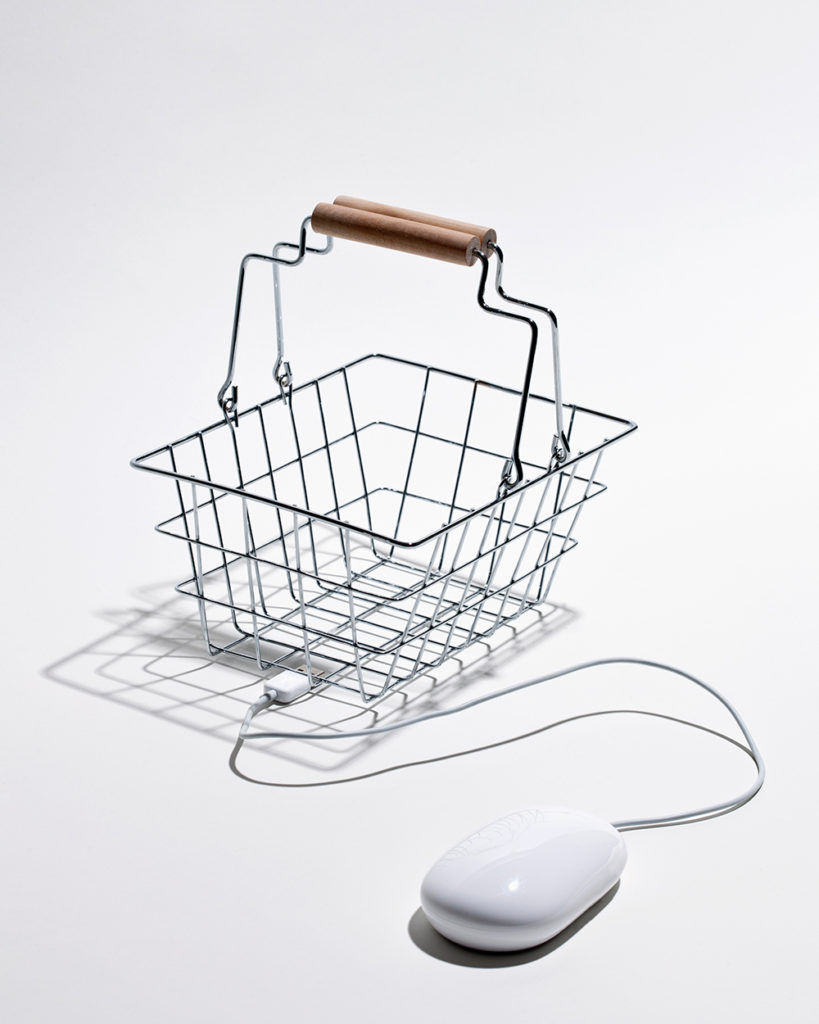
In this series, Maxine Fourie shares her inside tips to living your best life—on a budget.
With pretty much every store now being available literally at our fingertips, the world of online shopping has rapidly changed the way that we think about, view and ultimately, purchase. Because of the convenience and the ease we’re now buying more than ever and we’re buying more impulsively.
If you’re anything like I was, your heart sings at an online sale and the bold lettering of ‘50% off’ in your inbox, gives you an unexplained kind of happiness that nothing else can.
These temporary heart palpitations more than often lead to a whole heap of *add to cart* moments, that usually ends in buyers remorse and disappointment. But like anything, online shopping can be addictive and it relies heavily on the market of impulse purchases, so going back to purchase more and more will happen regardless.
Whether you’re in denial that your online shopping addiction is real, or if you know that you’re overspending, getting yourself in check and re-evaluating your finances is always a positive move even if it’s only every once in a while. With the average person spending $5,400 yearly on impulse buying, curbing an online shopping addiction is more important than you think – so we’re here to break that down for you.
If you’re wanting to kick your impulsive spending habit to the curb, save money, reduce debt and live a more minimalist lifestyle, read on for our ultimate tips:
Time is money
When ‘window shopping’ online, it’s easy to fall in love with a garment at first sight and then rush to add to cart, only for it to arrive and you have a complete change of heart. To prevent this from happening, apply the ‘time is money’ rule but in reverse – rather than buy quickly, delay your purchase of an item by at least three days – maybe even a full week. If you find yourself thinking about the same item over the course of those days, then you know that you really do love that item and you’d value it in your wardrobe.
Remove your credit cards
There’s no denying that when something is easy and convenient, we tend to do it more. Therefore doing the contrary will ideally make you do less. By removing all your credit cards, PayPal information and account details from online websites, the checkout changes from what was a seamless process, to a boring and niggly one. Re-entering your details time and time again will delay the checkout process and make you think twice about your transaction, hopefully curbing your overall spending.

Have a game plan
Like anything, if you’ve got a game plan in place, chances are you’ll be more focused and have a successful outcome, so apply this when heading online. First things first – set yourself a budget (we recommend the 50-20-30 rule). If your wardrobe needs an update, whether it’s for a new job, change of season or general refresh, compile a list of the items you really need, so you can differentiate these from the wants. It’s easy to get sidetracked when online shopping, but remembering what you came for and keeping your goals in mind when browsing, will help you to resist the added temptation and remove the impulsive heart-shaped sunnies and neon sports bra from the cart.
Unsubscribe
One of the simplest tricks to curbing an impulse online shopping addiction is to just unsubscribe from online retailer databases. With promotional emails hitting you left, right and centre, luring you in to purchase unnecessary items you weren’t thinking about, it’s easy for the impulsive items to add up in your shopping cart. By simply removing the opportunity of distraction, your inbox will be lighter but your bank balance certainly won’t be.
What’s your why?
Before checking out, ask yourself are you purchasing this item because you’re sad, bored, stressed, or because you actually need it? When you’re more aware of what you’re buying, you become more intentional about the purchases you make. Remember if you’re #treatingyourself every day, it’s no longer a treat and emotional purchasing is a deeper issue that won’t be addressed by blowing your rent on pearl hairclips and new sneakers. Understanding the root cause of your shopping habits allows you to positively change your behaviour.










